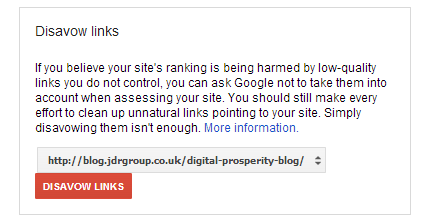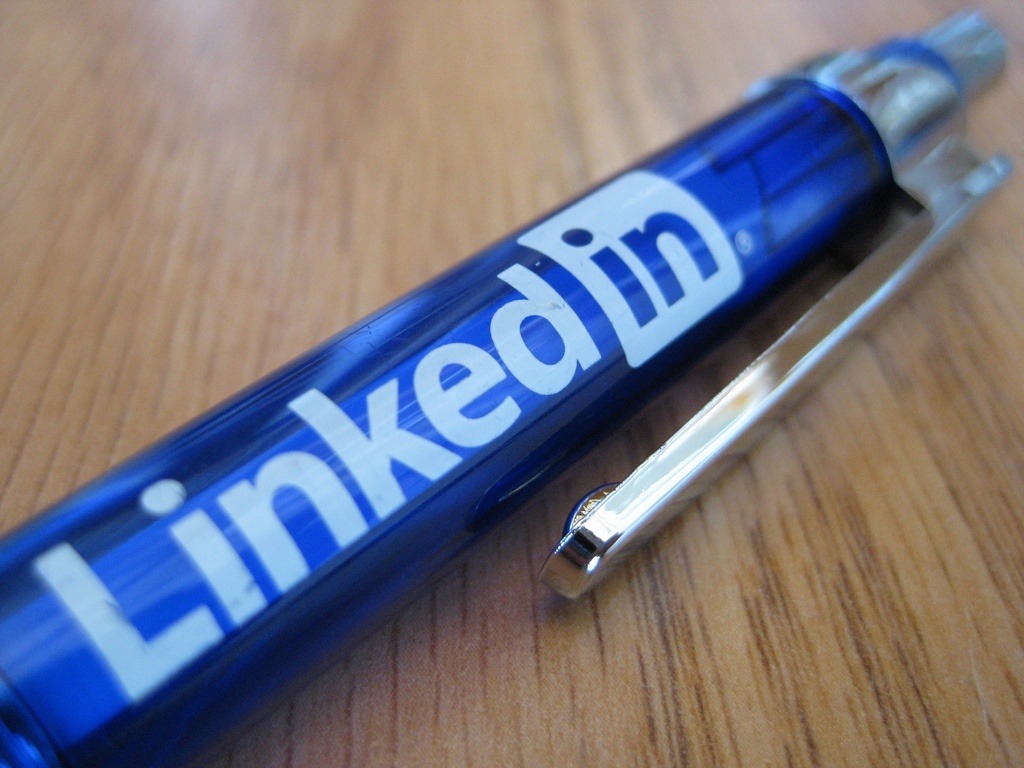How Do I Increase My Google Rankings?
by Will Williamson on 17-Jun-2013 19:53:00
The last two years have seen many fluctuations in Google’s rankings – and many sites which were previously sitting pretty at the top of the rankings have now dropped like a stone. If this has happened to your site then this is your guide to help you understand why this has happened – and what to do about it:

Why Your Google Rankings Have Dropped:
There is usually one of three reasons why your Google rankings will have dropped:
1) Competitors Have Gained An Advantage
You don’t know what time, effort or budget your competitors are investing in their SEO but it could be that they have been hitting it hard and you are simply not doing enough to keep up. Maybe your competitors are building more links and/or better links. Maybe they are creating more and better content and are more engaging on social media, maybe their website does a better job in convincing visitors to stick around and convert. Either way, if you are not keeping up or getting ahead, then you will lose your positions.
2) Google Algorithm Updates
Google’s algorithm is the program it uses to evaluate which website should come first, second, third etc. for any given search query. It looks at thousands of criteria on every website and attaches more importance to some than others. Google regularly changes its algorithm, for example with the Panda and Penguin updates of the past two year which have had a major impact on businesses.
If you previously had an advantage, an algorithm update could take that advantage away and your rankings then drop. For example, if you had lots of links from a certain source and all of a sudden Google reduces the importance or value of those types of links, then you can lose your position.
As another example, a common practice in recent years has been to buy and use a domain name which exactly matches a keyword – www.widgetsinmanchester.com for example. This used to give a website a good advantage until the Exact Match Domain (EMD) update earlier this year. Websites with poor content and a poor link profile but an exact match domain have since dropped in the rankings as they have lost the advantage that this gave them.
3) Google Penalties
 The Panda and Penguin updates meant, for the first time, that you could now be penalised for your SEO effort if you were seen as creating low quality content and/or spamming links. Five years ago, you could build as many links as you wanted and the only danger was wasting your time if they were poor quality. Now, poor quality links can be a serious danger to your site. Some websites have been merely ‘suppressed’ in the search results, others have been removed altogether.
The Panda and Penguin updates meant, for the first time, that you could now be penalised for your SEO effort if you were seen as creating low quality content and/or spamming links. Five years ago, you could build as many links as you wanted and the only danger was wasting your time if they were poor quality. Now, poor quality links can be a serious danger to your site. Some websites have been merely ‘suppressed’ in the search results, others have been removed altogether.
So if you’ve suffered a drop in rankings, it will be one or more of these factors.
What To Do When Your Rankings Have Dropped:
1) Identify The Cause Of The Drop
If you have suffered a small drop in places but are still ranking for your keywords, then it’s most likely that either your competitors are getting ahead of you or that you have lost a previous advantage due to an algorithm update. If you have dropped out of the rankings altogether, then it’s possible you may have been penalised.
Ask your SEO company for a historical comparison in link building between your site and your major competitors to see if they have been simply doing more than you. You can also log into Google Webmaster Tools to see if you have had any warnings about your site – they will inform you if there are any links which you should remove.
2) Create Rich, Unique & Compelling Content & A Great User Experience
Google’s aim is simple: to provide it’s users with the best possible experience for every search. If you want to be number one in Google for the keyword ‘Blue Widgets’, then you need to have the best page about Blue Widgets on the ENTIRE internet. This means lots of fascinating and useful content, further resources and links to pages (ideally on your own site) where your users can find more information about blue widgets. Google index all of this rich content, but they also track what happens to your website visitors – it tracks how many pages they view, how long they spend on the site and how many ‘bounce’ back to the search results. So make sure you give people a great experience when they arrive on your web pages – you will lose rankings if not.
3) Diversify Traffic Sources
Stock market investors talk of having a ‘balanced portfolio’ and most business owners will be aware of the danger of having just one big customer – having ‘all your eggs in one basket’. Don’t just rely on organic search traffic – SEO should be an absolute cornerstone of your online marketing efforts but if it accounts for, say, 95% of your traffic then you have a problem. Having consistent traffic from social media, Google Adwords, display advertising, repeat visitors, referrals and offline sources spreads your risk and means you are less susceptible to algorithm changes in the future.
4) Get More, High Quality Links
Links are still the biggest driver of SEO despite the ‘link building is dead’ headlines we’ve seen in recent months. Poor quality link building and spam link building IS dead, however. To rank higher, you will need more good quality links from a wide range of sources, and less poor quality links.
5) Remove Bad Links & Use The Disavow Tool
Some links could actively be damaging your rankings, and Google has now introduced a tool to tell them when you ‘disavow’ a link. In order for Google to dismiss a bad link and lift any potential penalty, you’ll need to demonstrate that you have done everything in your power to remove the link yourself. If you do have some bad links, it’s important to do this anyway as otherwise using the disavow tool will just draw attention to the fact you have lots of bad links and can trigger a manual review which could mean your site has a worse penalty. On the other hand, you need to be careful when removing links though, as you can inadvertently remove links which are actually helping your rankings! In most cases, removing links and/or using the disavow tool is unnecessary as most rankings drops are not due to a penalty from Google, but a loss of previously held advantages or being overtaken by competitors.

6) Keep Calm & Don’t Panic!
As long as you are consistently building good quality links from a variety of sources and using white hat, ethical techniques, and as long as you are creating rich, good quality content on your website then you will be fine in the long run. SEO is about playing the long game, not just chasing the algorithm and sometimes you just need to be patient. If you are doing the right things, then just ride it out - you’ll win in the end.
photo credit: Carl's Captures via photopinImage courtesy of [image creator name] / FreeDigitalPhotos.net
- Inbound Marketing (SEO, PPC, Social Media, Video) (831)
- Strategy (368)
- Sales & CRM (197)
- Marketing Automation & Email Marketing (190)
- Business Growth (168)
- Website Design (162)
- Hubspot (141)
- Lead Generation (117)
- Google Adwords (100)
- Content Marketing (94)
- Conversion (53)
- Case Studies (49)
- News (47)
- Ecommerce (39)
- Webinars (34)
- SEO (26)
- AI (20)
- Events (19)
- LinkedIn Advertising (17)
- Video (17)
- Video Selling (15)
- Software training (13)
- Niche business marketing (11)
- The Digital Prosperity Podcast (10)
- HubSpot Case Studies (7)
- Facebook Advertising (6)
- Web Design Case Studies (1)
- February 2026 (2)
- January 2026 (12)
- December 2025 (15)
- November 2025 (6)
- October 2025 (17)
- September 2025 (16)
- August 2025 (14)
- July 2025 (14)
- June 2025 (5)
- May 2025 (19)
- April 2025 (15)
- March 2025 (13)
- February 2025 (13)
- January 2025 (8)
- December 2024 (2)
- November 2024 (4)
- October 2024 (21)
- September 2024 (4)
- August 2024 (8)
- July 2024 (14)
- June 2024 (16)
- May 2024 (25)
- April 2024 (15)
- March 2024 (18)
- February 2024 (5)
- January 2024 (10)
- December 2023 (6)
- November 2023 (10)
- October 2023 (13)
- September 2023 (12)
- August 2023 (14)
- July 2023 (13)
- June 2023 (14)
- May 2023 (15)
- April 2023 (13)
- March 2023 (14)
- February 2023 (13)
- January 2023 (15)
- December 2022 (13)
- November 2022 (6)
- October 2022 (8)
- September 2022 (22)
- August 2022 (15)
- July 2022 (13)
- June 2022 (16)
- May 2022 (14)
- April 2022 (16)
- March 2022 (17)
- February 2022 (11)
- January 2022 (8)
- December 2021 (6)
- November 2021 (7)
- October 2021 (11)
- September 2021 (10)
- August 2021 (7)
- July 2021 (7)
- June 2021 (4)
- May 2021 (4)
- April 2021 (1)
- March 2021 (3)
- February 2021 (5)
- January 2021 (4)
- December 2020 (7)
- November 2020 (6)
- October 2020 (5)
- September 2020 (9)
- August 2020 (18)
- July 2020 (17)
- June 2020 (17)
- May 2020 (10)
- April 2020 (21)
- March 2020 (24)
- February 2020 (21)
- January 2020 (12)
- December 2019 (23)
- November 2019 (12)
- October 2019 (14)
- September 2019 (16)
- August 2019 (15)
- July 2019 (13)
- June 2019 (6)
- May 2019 (8)
- April 2019 (4)
- March 2019 (2)
- February 2019 (2)
- January 2019 (2)
- December 2018 (3)
- November 2018 (24)
- September 2018 (11)
- August 2018 (9)
- June 2018 (3)
- May 2018 (6)
- April 2018 (14)
- March 2018 (12)
- February 2018 (16)
- January 2018 (15)
- December 2017 (15)
- November 2017 (18)
- October 2017 (23)
- September 2017 (19)
- August 2017 (28)
- July 2017 (27)
- June 2017 (25)
- May 2017 (18)
- April 2017 (17)
- March 2017 (16)
- February 2017 (17)
- January 2017 (14)
- December 2016 (21)
- November 2016 (27)
- October 2016 (25)
- September 2016 (16)
- August 2016 (20)
- July 2016 (19)
- June 2016 (14)
- May 2016 (20)
- April 2016 (24)
- March 2016 (22)
- February 2016 (28)
- January 2016 (27)
- December 2015 (28)
- November 2015 (19)
- October 2015 (9)
- September 2015 (12)
- August 2015 (5)
- July 2015 (1)
- June 2015 (10)
- May 2015 (3)
- April 2015 (11)
- March 2015 (14)
- February 2015 (15)
- January 2015 (12)
- December 2014 (2)
- November 2014 (23)
- October 2014 (2)
- September 2014 (2)
- August 2014 (2)
- July 2014 (2)
- June 2014 (7)
- May 2014 (14)
- April 2014 (14)
- March 2014 (7)
- February 2014 (2)
- January 2014 (7)
- December 2013 (9)
- November 2013 (14)
- October 2013 (17)
- September 2013 (3)
- August 2013 (6)
- July 2013 (8)
- June 2013 (4)
- May 2013 (3)
- April 2013 (6)
- March 2013 (6)
- February 2013 (7)
- January 2013 (5)
- December 2012 (3)
- November 2012 (2)
- September 2012 (1)
Subscribe by email
You May Also Like
These Related Blogs

The Google Disavow Tool: 5 Do's & Don’ts (When & When NOT To Disavow)
What is the Google Disavow Tool? The Google disavow links tool is a feature of Google Webmaster tools. It lets you submit a file that tells Google whi …

Which CRM Should I Use For My Business?
A customer relationship management (CRM) system is a highly useful marketing tool. When used properly, it can help you streamline your relationships w …

LinkedIn – A Practical Guide For Senior Managers, Directors and Board Members (Who Are Not Marketers!)
LinkedIn is the worlds number one business focussed social media network – it is used by professionals, senior managers and directors to promote thems …



